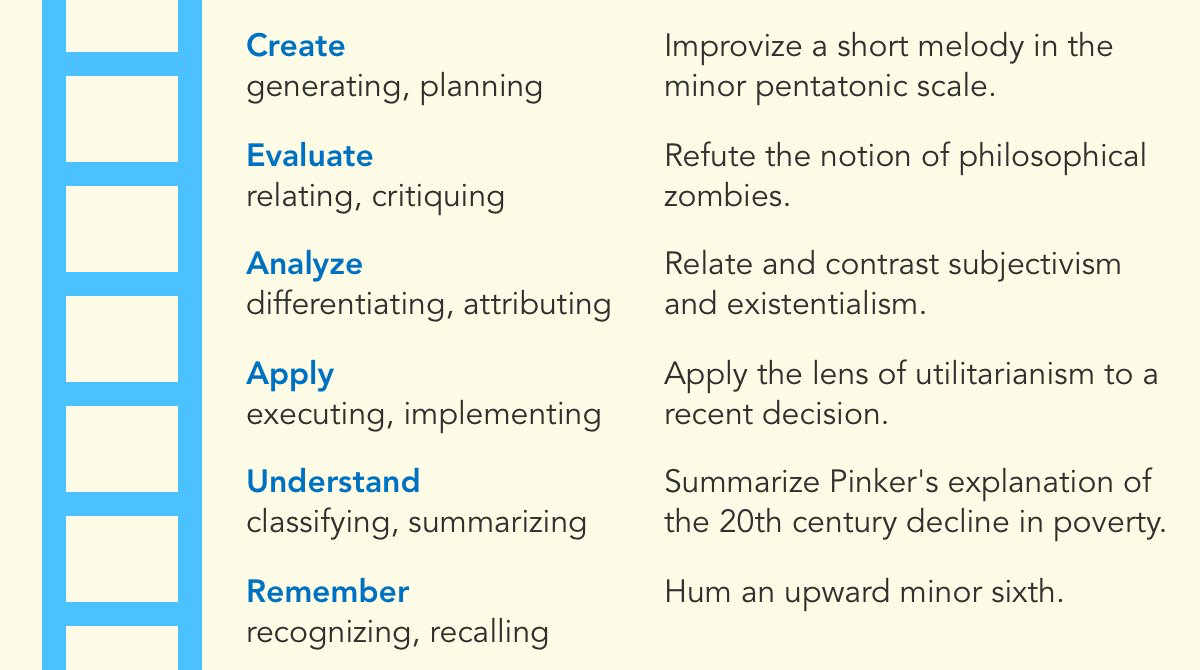Andyʼs working notes
About these notesHow might the mnemonic medium support readers in building more complex understanding?
The Mnemonic medium helps readers remember what they’ve read, and that’s an important first step to understanding (Deep understanding requires detailed knowledge of fundamentals). We also use these prompts to help readers acquire conceptual knowledge: Spaced repetition memory systems can be used to develop conceptual understanding. And we’ve gone beyond recall: The mnemonic medium can help readers apply what they’ve learned through simple application prompts. So. How might we continue up Bloom’s taxonomy to support more complex types of understanding? Related early experiments suggests that this may be possible: Spaced repetition memory systems can be used to prompt application, synthesis, and creation.
One angle would be to focus on Retrieval practice and transfer learning (e.g. The mnemonic medium could include prompts which support near transfer).
A solution is likely to involve adding complexity to prompts over time, perhaps introducing synthesis-oriented prompts after readers already have firm recall. See The mnemonic medium can be adapted to author an experience which unfolds over time, and Idea-centric memory system
https://twitter.com/andy_matuschak/status/973020621847187456